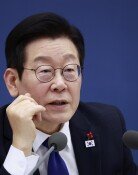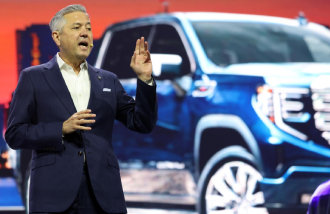3 titans who helped Korea grow into an int`l trade powerhouse
3 titans who helped Korea grow into an int`l trade powerhouse
Posted December. 07, 2011 00:10,
○ Samsung Group`s Lee Kun-hee: No.1 export products
Following the death of Samsung Group founder Lee Byung-chull in 1987, his son Lee Kun-hee took over as chairman at age 45 and developed the conglomerate into Korea`s leading business.
The group`s flagship affiliate Samsung Electronics is the world`s top semiconductor producer and topped global mobile phone sales in the third quarter. The company entered the cellphone business started 15 years ago.
Much of Korea`s economic growth can be attributed to Samsung Electronics since it developed semiconductors and mobile phones into world-class businesses as well as the country`s major export products.
Samsung Group`s annual sales jumped to 254 trillion won (225 billion U.S. dollars) last year, up from 17 trillion won (15 billion dollars) in 1987 when Lee Kun-hee was appointed chairman. The group`s sales accounted for 22 percent of GDP last year.
Chairman Lee brought up topics such as "New management," "Sandwich" and "Creative management" to Korean society. "New management" was a philosophy that conveyed his strong drive toward change.
His famous comment "Change everything except your wife and children" stirred a sense of urgency to employees and helped them get out of their comfort zones.
In a meeting with presidents of electronics affiliates in 2001, Lee Kun-hee said, "Though the Netherlands and Finland are small countries, they wield powerful influence over the world economy thanks to a handful of world-class companies," adding that large Korean companies should have a strong sense of mission to boost the national economy.
○ Hyundai Group`s Chung Ju-yung: from rags to riches
While Korea had to drag itself out of the destruction of its economy following the end of the Korean War, Chung Ju-yung, the late founder and chairman of Hyundai Group, pursued cars, shipbuilding and construction. Out of nothing, he developed ships and cars into Korea`s top export.
In 1965, Chung aggressively jumped into the overseas construction market to make Hyundai Construction & Engineering the first Korean builder to make inroads into the world market. Despite a weak industrial base, he won an order from Thailand to build highways and completed port construction in Vietnam.
In the late 1960s, Korea`s shipbuilding capacity was just 100,000 tons. Chung, however, aggressively sought to build an ultra-large shipyard able to handle hundreds of thousands of tons. In just eight years since opening a shipyard in Ulsan, North Gyeongsang Province, Hyundai Heavy Industries became the world`s 10th-biggest shipbuilder.
In the 1970s, Chung entered the automotive industry. The history of Korean cars started in 1976, when Hyundai Motor launched its first model Pony. In 1987, Hyundai`s subcompact Excel became the top seller in the U.S. market for imported small cars and overtook Japanese models.
○ Samsung Group founder Lee Byung-chull: a man of foresight
The history of Samsung Group started in March 1938, when 28-year-old Lee Byung-chull set up a trucking business in Daegu named Samsung Trading. He ended up succeeding in everything he did, including a trading company that turned into Samsung C&T Corp., sugar manufacturing at CheilJedang, and TVs made by Samsung Electronics.
In 1980, he laid the foundation of Samsung Electronics by investing in semiconductors after meeting Japan Business Federation member and professor Inaba Hidezou. The professor said the future lay with light and small businesses rather than in heavy industry or large-scale businesses.
This year, Korea has achieved 1 trillion dollars in annual trade volume, a milestone that just eight other countries have achieved. In a survey of who should be honored for their trade achievement, respondents gave the highest ratings to the three tycoons mentioned above.
Other entrepreneurs mentioned included Hyundai Automotive Group Chairman Chung Mong-koo (4.8 percent), POSCO honorary chairman Park Tae-joon (2.3 percent), Daewoo Group founder Kim Woo-choong (1.4 percent), the late LG Group founder Koo In-hwoi (0.9 percent) and current group chairman Koo Bon-moo (0.3 percent).
When it came to presidents, the late Park Chung-hee won the most praise for his economic accomplishments with 46.4 percent, followed by President Lee Myung-bak with 13.5 percent, the late Kim Dae-jung 10.2 percent, the late Roh Moo-hyun 8.7 percent, and Chun Doo-hwan 2.1 percent.
sun10@donga.com







